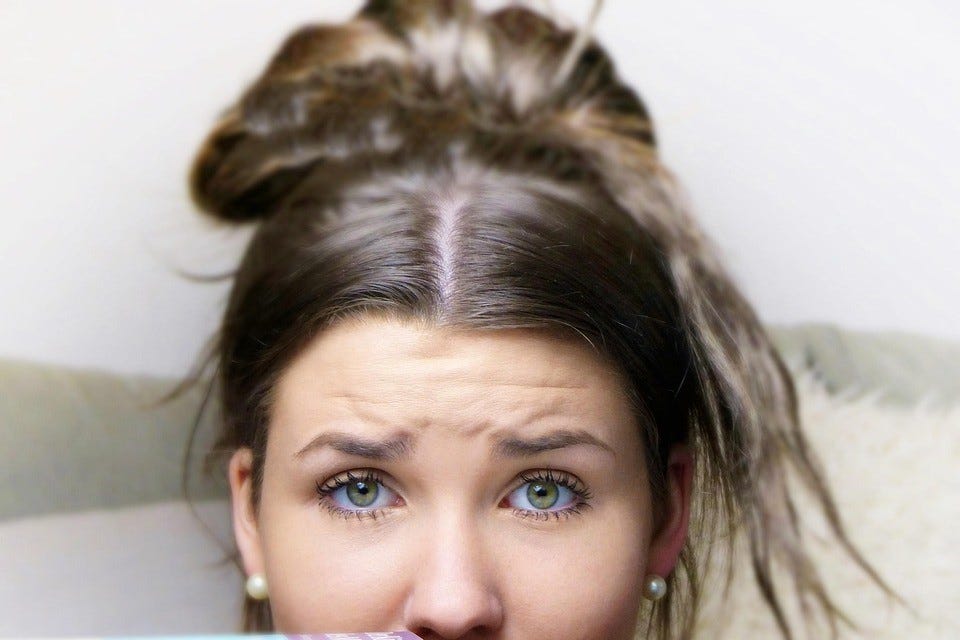Old Friend's Reactions to Chronic Illness
An insight from the conversation in Lilian Sjøbergs Overcome Parkinsons course

I explore the subject of what pushes people into stress, and, when I can see the pattern, I make some sort of antidote to that problem.
This week we started with the subject “How other people influence your stress”, and this little piece of gold came up when I was video editing the call from the last round of courses.
[By using previous recordings as part of the course, people can learn from each other and the subjects can be expanded on and discussed to a degree that I on my second language cannot reach].
So, What did people in my current class come up with about obstacles with other people's reactions to them as a person having a serious and chronic illness?
The below conversation came up in our discussion:
Lilian: The next subject is what type of problems you have with other people. People are a big part of our life, we are not isolated on Islands. We are living with people and we can get good energy from people. They can rip us out of a bad mood, but the opposite is also the case.
A: I have problems with the reaction of other people. I feel as though I have to manage their overreaction when they see me. They will pity me. They'll bring Parkinson's into every conversation, asking kind of in a pathetic way how I am - not really meaning it, but they just want to know where I'm at for their own curiosity.
And so, as a result, I don't want to run into anybody by surprise. I want to be prepared to try and be my best, put on a fake smile, and be able to manage the situation.

Lilian: Did any one of them comment that you actually are a little better now than you were before?
A: Not those people. I have other friends who say I look great. I'm the picture of health: “I look stronger. I look fantastic. The doctors are wrong. They knew it all along.” Those are the people that I want to be with. They helped me empower myself.
Me: So another question. I'm just challenging you: Why are you still friends with the other group?
A: Yeah, I don't know. I've got to reflect on that. Well, I certainly feel that some people just have negative expectations.
B: As soon as they hear about the Parkinson's diagnosis, they think they know the trajectory. They know where I'm headed. They know everything about me. And, you know, I always want to say, you know, “It's not your grandfather's disease.” We don't think about it the way we did 20 - 25 years ago, but people don't really hear that.
You know, they say, oh, that's nice, you know, I'm not gonna change anybody's opinion! Let them observe me.
C: My mother used to always say: “actions speak louder than words.”
D: People say, “I know exactly how you feel.” Like you say you're so fatigued you can't see straight and they say: “I get that too.” I've pretty much come to terms with this when people say how's your health and I now say “Do you mean my health or Parkinson's?” - They're like tippy-toeing around it.
Another difficulty I have is how to explain to people how I am doing or how to choose which people to explain to me what I'm doing around Parkinson's.
I mean yesterday at the grocery store somebody I hadn't seen in a long time asked me if I was getting better with one of those looks on his face like I couldn't tell where he was coming from.
E: I think people are really scared. I think it makes people feel their own mortality.
Their own risk of getting some kind of chronic old people's disease.
F: I fear their judgment. So if I could be free of the judgment of other people, I would be fine.
G: Yeah, people are terrified they're gonna get diseased and so when you tell them that you have a chronic illness it is like “Oh my goodness it happened to you.”
H: I don't tell anybody. I just told someone and he ghosted me because it's just too much. I get this sometimes: "Oh, you must have done something wrong. You must have drank too much alcohol in college or you didn't exercise enough." That's kind of hard to take.
The cure for this awkward embarrassment when meeting old friends is to find the more natural reasons for your symptoms.
Herby is an invitation to forget everything you have ever known about chronic illness and give yourself and others a new start free of old beliefs of doom and gloom.
Symptoms are probably stress accumulated after a long life.
I invite you all to use the diagnosis of LTSD (Life-accumulated Trauma and Stress Disorder). We have all got it more and less, and it can give all sorts of symptoms.
If symptoms vary during your day it is a sign that it is stress-related.
People with Parkinson’s are hard-hit by the doctor’s nocebo effect of the doom and gloom. Negative expectations from doctors and other people are not helping. As an example in Canada, people with Parkinson's are offered assisted suicide at the time of diagnosis (one is in my course). People with Parkinson’s are scared to death of the future that is painted for them by authorities.
I have found that Parkinson’s is the physical manifestation of stress (read through all my and
’s posts). So to scare people with terrible future scenarios [=nocebo] is to implant more physical symptoms in them [because there is no separation between body and mind]. The diagnosis itself is traumatic for most people, and even the yearly tests at the neurologist's office are scary, as they are told whether or not they are getting worse.Dear all,
Are you ready to explore a new perspective on Parkinson’s and the impact of stress on our physical well-being? I invite you to join our waiting list for the next round of our initiative, where we delve into the profound connection between mind and body.
I ensure a supportive environment that empowers individuals instead of instilling fear.
You will get more of this type of knowledge and participants share insights that can help transform your approach to this condition.
If you’re interested in a mindset that promotes healing and resilience, please sign up for our waiting list.
Thank you for considering this opportunity. I look forward to supporting you on this journey.
Warm regards,
Lilian
The waiting list for the next course of Overcome Parkinsons is found here
Note: Canada: 5% of their population dies via assisted dying.
(Maybe it is time to give assisted life help.)






Love the comment re. MAID in Canada. Our medical system has become inadequate and needs upgrading, like just about everything that was once touted as the best. Great work!!
I don't have Parkinson's myself, but lots of other chronic illness stuff. From family especially that I live with, I get a lot of making up in their head what I'm going through, and responding as if that's real, and lots of the time its something not very charitable to me while at the same time not trying to understand or ask about hear about what I'm actually going through. Their entire relationship with me is made up by them, especially around my limitations. I got the I'm ill because I don't exercise one too a lot, but the reality is I used to a lot, and had to stop because it makes things way worse for me.